Security around the home can be universally overlooked by the average person (including myself) at times. Yes, even Security Experts can get distracted or complacent! Even so, those moving to a new area can have even tougher obstacles. In my case it was distraction and work overload that played havoc with my security. Having just moved my family across the state to a totally new area was difficult and presented many challenges. Not only did my home need to be moved, but also my shop and business. The stress of moving, fatigue, and unfamiliar places can add up to spell disaster.
Some of the things I came up with during this move really assisted me; security disasters were averted, prevented and avoided. I thought it best to share some of the tips used in my move and couple them with some tried and true home security measures. Many of these things I’m sure aren’t new to the average homeowner. Whether you are constantly on the go or are new to an area these tips can be helpful. Are they being implemented? That is the question and my challenge to you.
Image courtesy of healingdream / FreeDigitalPhotos.net
Vary your schedule and routes to home and work.
Neighbors notice when you leave and when you come home. If you are as predictable as the palace guard you are increasing your chances of being burglarized by a person near your home. Using different routes and varying times can also educate you on the area around your home. Which routes are most efficient at different times of day? Is there more than one way to get to work during construction or traffic problems? You can even learn what your neighbors and teenagers are doing during your time away by surprising them when showing up unexpectedly.
In my case learning the roads in my new neck of the woods has proven very valuable to me and my wife. My unpredictable schedule also kept potential crooks jumping as I could show up literally at any time of day. Moving vans and boxes are a dead giveaway that someone new is moving in… but counter balancing that with unpredictability helps immensely. Leave to the corner store and come right back, or even go around the block then home. This may seem like paranoia but it isn’t when you are in a new or unfamiliar place. I often did this without even meaning to as I habitually leave my coffee or briefcase wherever I go!
Lights and sound equals ACTION!
Give the impression of activity when you aren’t at home or work. Leave a radio turned on and couple that by leaving a light on as well. Many times people think you are still “there” when they get the impression of activity.
The reverse is of course, inactivity. Piled up phone books on the steps, items left in the same spot for weeks on end, no lights or sound; these things create a safe atmosphere for the crook. Ever walk into a place like a campground and just feel like “man, no one has been here for a LONG TIME.” Your home can also give that impression. You want the people around to believe that you are home or that you could be home at any time.
Light timers can be used on both lights, radios, and even televisions. No need for fancy home integration systems when a $15 timer will suffice. You can also have friends, relatives or trusted co-workers visit your place to create an impression of activity. Be careful handing out keys and alarm system codes however. Keys can be copied, and alarm codes can be mistakenly left for others to see. Lend out keys stamped “Do Not Duplicate” available at your local locksmith shop, or have your locks construction keyed. This makes a key temporary until the owner removes it from the construction key system. Then the temporary key no longer works and the lock does not need to be rekeyed.
If you are moving into a previously occupied place, have it rekeyed.
Image courtesy of Michelle Meiklejolin / FreeDigitalPhotos.net
In the last tip it was suggested to have a place construction keyed for friends to create an atmosphere of activity when you are away or on vacation. But when you first buy or move in you must determine if the locks there are new, have been rekeyed, or even if they are already construction keyed or master keyed. You don’t want a stranger to just walk in during the middle of the night, do you? Nope and me either! Have a locksmith service your locks first thing when moving or renting a new place.
This isn’t going to break the bank if you do research and find a good local locksmith. If you are a DIY type of a person you can even replace the locks yourself by ordering them keyed alike from a hardware store or lock shop. Just make sure that when you move in all keys are accounted for and that locks are unique and in good working order. You also don’t want to get locked out by a malfunctioning lock or worn key.
The first thing I did upon getting our new home was have the locks replaced and rekeyed as needed. I was handed a pile of keys when I arrived by the previous occupant. Some of these keys did not work, some did, and a few I think were just pawned off on me. The lock to the shed didn’t work or have a key, the passage locks in the bathroom and basement didn’t work, and the exterior door locks had worn over-copied keys that worked intermittently. I spent some money, replace those that needed it, lubricated locks, rekeyed locks and fixed the ones that were easily repaired or adjusted.
Not only did this help my overall security. It gave my Wife and me peace of mind and lessened sources of possible stress. Yes it costs money to do it but it would have been more stressful if we were locked out and more expensive to have a locksmith come after hours to let us in. Also, no one has let themselves in with an unaccounted key as the locks are brand new! Seems like a no brainer to me!
Make eye contact and introduce yourself.
Another idea that can really help you and its obvious but overlooked. Be friendly to your new neighbors and introduce yourself! Make eye contact, smile, and stand up straight.
Yes I am a Dad, but that isn’t the reason I’m lecturing you. Crimes happen less frequently to confident people who create boundaries and to those who don’t act like a victim.
By making eye contact you are displaying confidence. When you smile and introduce yourself you are asserting yourself, and setting a social boundary. You are saying “I’m here and I’m not afraid to talk to you and let you know I’m here.” If you are a nice person your new neighbors might even look out for you and help you out with local problem people or situations. Most people are good and want to help you out. The people who aren’t nice will show their colors in this situation and ignore you or display behavior that tells you “go away”. This is good to know and is actual a good way to gather intelligence on your new neighbors. If they frown, avert their eyes, ignore you or refuse to shake hands you can bet that they might be someone to watch or avoid.
Two sets of eyes are better than one.
When you are busy it is difficult to notice the little things. If you are stressed out, tired, or overwhelmed it can be worse. Is that a snake or a garden hose? Try to buddy up with someone during your move or travels to make it safer.
My sixteen year old daughter is often texting away obliviously, but she noticed that I left my front door unlocked. My wife can’t move heavy things, but she was good at pointing out strategies and missed items during the move. Even my cat helped by finding things dropped under the appliances! Another set of eyes is vital when you are on the go or are moving. At one point I had a moving truck hit my work van… but it was under the watchful eye of my friend helping me move and we spotted the moving truck before it could leave the scene unnoticed by me. Another disaster averted!
Final Thoughts
Be sure to vary your schedule and routes. Create an atmosphere of action by using lights and sound to give the impression you are home or nearby. Replace or rekey locks and make sure you can secure your property and loved ones at night. Make eye contact, smile and introduce yourself to learn about the new people that surround you and to display confidence. Being friendly with new people can help you and your family. Lastly, travel with a buddy. Get a second set of eyes to increase your awareness and point out the things you miss.
True security is not simply knowing about security tips, it is in the implementation. Security measures must be part of your daily routine, so much so that when you are stressed out or tired, they practically implement themselves. Added stress like moving or hectic schedules should not derail your security program.
To my amazement and to my families’ amusement, I made many errors during this strenuous move. I left my work truck unlocked overnight with tools and products inside. I simply forgot to lock the deadbolt on the old place with our belongings still inside. I even lost important paperwork and misplaced many vital business documents! But in the end nothing was stolen, we weren’t burglarized, and we were always safe. By implementing these security tips regularly I was able to have a safe move, and in the end my family’s safety is more important than financial or business concerns. Make sure to implement these security tips when you travel, are on the go or are in the middle of a project or move. They made my difficult move safe, and hopefully they help you, too.



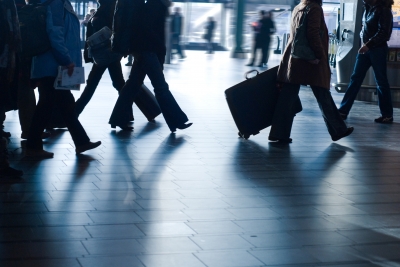
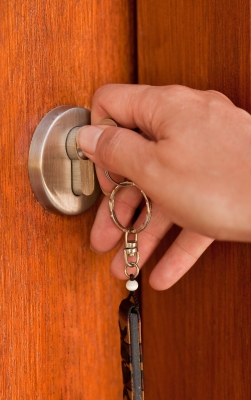

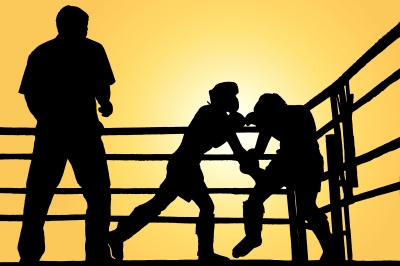


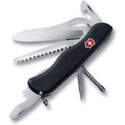



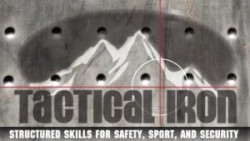


Recent Comments